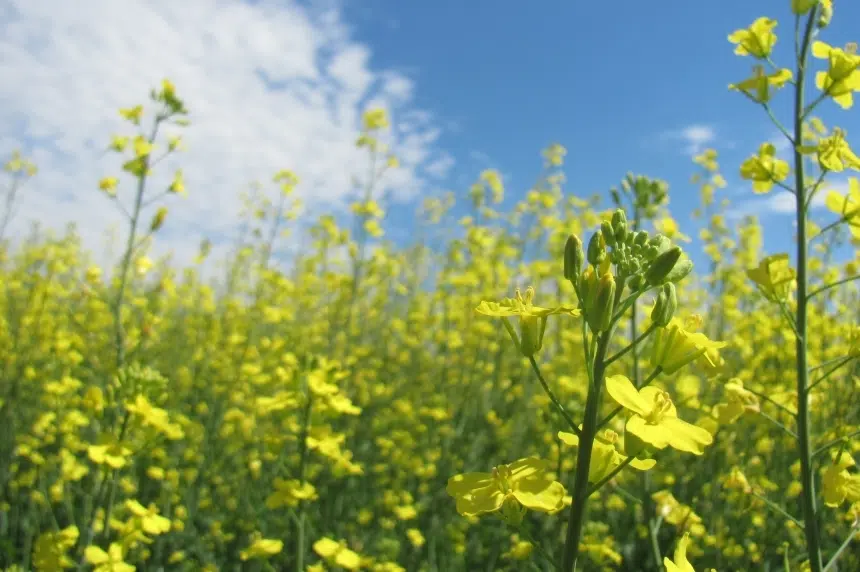There’s no shortage of problems that Saskatchewan farmers deal with, but one of them is going away.
The federal government announced Wednesday the Chinese ban on Canadian canola imports from two companies — Richardson International Ltd. and Viterra Inc. — had been lifted. The ban was put in place in 2019.
“We welcome this decision to remove the restrictions and immediately reinstate the two companies to allow them to export Canadian canola seeds,” the government said in a statement.
It’s also welcome news for farmers in our province.
Todd Lewis grows canola on his farm south of Regina.
“The biggest part of the canola ban when it was first started was that it really did affect the market and really affected sales off the farm … Farmers were very frustrated with China taking the position that it did,” he said.
“It’s been a long time coming, seeing the changes that China has finally made in their policy.”
While Lewis is glad the ban is gone, he also believes there was some good that came from it.
“The silver lining with what’s happened is … we found other markets. Even a lot of the recent announcements around canola crush plants and so on being built here in Saskatchewan, in a roundabout way, it has kind of been driven by policies like what China took,” Lewis said.
“We’re going to see a lot more of our canola in Saskatchewan processed and delivered by farmers right to domestic users, right here in the province.”
Jake Leguee farms near Fillmore, a town southeast of Regina.
While the end of the ban is welcome news to him, it didn’t make a huge difference last year, with a bad crop yield thanks to the drought.
“The crop was so short and we have lots of other buyers. China’s a major buyer, but they’re by far not the only one or even necessarily the most important one. For the size of the crop that Canada grew last year, finding buyers was not a problem,” Leguee explained.
That being said, he still thinks lifting the ban could mean better profits for farmers, as long as they manage to work through the moisture situation and get off a good crop.
“It’s hard to say whether we’ll get back to a normal (yield), but say we do. We’re going to want all the export markets we can get. It’s good to have options, right? Generally speaking, that should create better competition (and) that should create higher prices,” he said.
“It should mean that when we can grow a canola crop again, we’ll have lots of options of places for it to go.”







